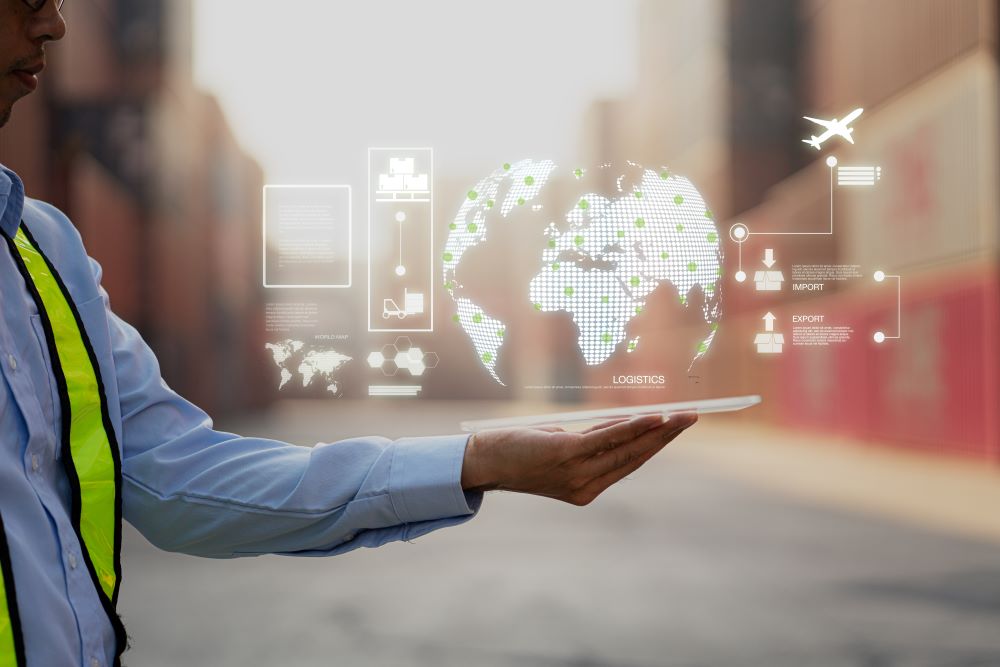
Written by Ian Wakeling, UK Commercial & Trade Compliance Director at Lockheed Martin UK
This interview was originally published in World Trade Matters – the quarterly journal from the Institute of Export & International Trade
Trade and politics go hand in hand; one facilitates the other with economic growth becoming an obsession for political leaders. When Europe was last “united”, under the Roman Empire, controlled import and export duties were first introduced with an enforcement regime to underpin it. The principles at that time are the same today; upholding the law, collecting appropriate duties and traders seeking the right of passage for them and their goods. What has changed though is the level of complexity and the manner in which goods can be traded across a global economy.
If we compare the trading environment back in the Roman times with today, the significant change, apart from the range of transportation methods, is with the underpinning of a worldwide regulator (World Trade Organisation – WTO). The WTO plays an important role as the “backstop” in supporting economic growth and maintaining relationships between nations. It sets deminimus regulated tariffs and duties for various goods as a default – something we have heard a lot during the Brexit debates. However, superimposed over the WTO arrangements are Free Trade Agreements (FTAs) which set alternative terms under which specific countries agree to trade with each other on favourable terms.
As an example of the complexity of a global economy, multiple “countries of origin” play their part. For instance, the F35 Lightning II which Lockheed Martin makes out of its Fort Worth plant in the USA, relies on parts from different countries; 15% of every aircraft sold is provided by the UK (a significant contribution to the UK economy with c£2Bn annually and 10,000 jobs supported). For military goods such as this, licencing arrangements come in to play, with the emphasis on end-users and what purpose such equipment will be put to. But not all countries deal with controlled goods or determine an export in the same way. For instance, for controlled goods and services, in the UK the export occurs when it leaves the UK border, whereas in the US the export occurs when it is given to, or shared with, a foreign national even if within the US borders. And with different foreign policies if one country arbitrarily placed a ban on certain exports which impacts another’s sale of equipment (because it relies on parts from that country) such moves can be disruptive. So, in the case of F35, for instance, if the UK banned goods from being exported to certain countries that the US continued to sell to, both sides would be impacted in the case of F35 if it was being sold to that country. Another reason why trade and the politics of foreign policy are interrelated.
As trade has increased and the determination of duty and tariffs has become more complex some nations, such as USA and China, are turning to technology to help with the complexity; insisting that goods shipped are also accompanied by electronic data to support the free movement across borders. Technology will play an increasing role in the facilitation process, just as the improvement of physical interventions by Customs officials has improved over the centuries. Already various AI tools are now available to data mine, harvest and interpret information in aid of regulatory controls and payment of duty.
Anything that can improve the timeliness of bureaucracy will do a lot to improve the financial outcome of trading. For instance, the cost of import tariffs could be exceeded by the losses incurred through slow clearance procedures, heavily burdened documentary requirements and the lack of automation. Of course, over time technology has come online and has done a lot to improve the situation, but this has been slow to be adopted generally and with a demand on resources and economic realities, then in a lot of cases enforcement of regulatory policy has moved to a risk-based strategy with the reliance on more self-assessment and a “trust but verify” approach.
A growing trend in today’s global economy, and one that further extends the range of responsibilities of a Customs organisation, is the reliance on sanctions and embargoes, which is used effectively as an alternative to military intervention. The imposition of an export ban can have repercussions for not only the country (or individual) but the exporter, especially if imposed part way through a transaction.
While economic growth relies on a healthy trading environment it has come a long way from those early days of the Roman Empire, although the risks involved in moving goods and having to accommodate tariffs and duties along the way has remained a constant. While the options for transporting goods and services has never been so varied, it comes with a bureaucratic burden. And like most things, technology has taken time to catch up. But with the advent of AI and other innovations will we be able to see seamless transactions where borders only exist in the ether and controls are policed by algorithms?

